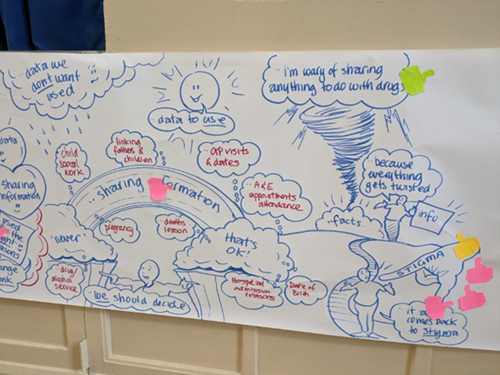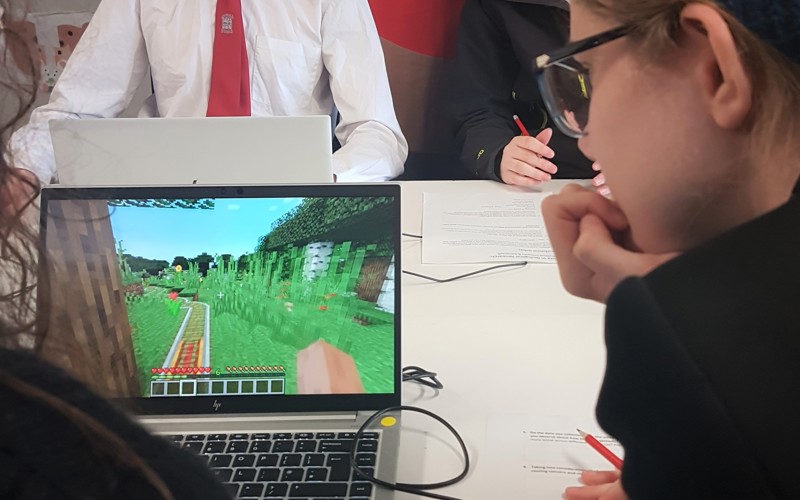
Public Engagement Fund returns for second year
Research Data Scotland (RDS) has announced the return of its Public Engagement Fund to support projects that improve public understanding of the use of data in research.
31 Jul 2024
Led by: University of Dundee
Funding awarded: £9,997

The My Data project engaged with groups of people who are in recovery from drugs and alcohol use to explore perceptions of the use of administrative data in research.
Working with Restoration Fife, a Dunfermline-based community organisation, the team initially ran workshops with two groups. Researchers introduced what administrative data is and how datasets are used, then asked participants how they felt about their data being shared and whether there is any data they would not want shared.

Discussions highlighted the mixed opinions and feelings of groups about how their data is used and varying levels of trust in researchers and services. The groups also highlighted the potential gaps in administrative data where interactions with services are patchy or do not cover the whole situation someone is in.
Smaller groups of participants then worked with an artist, Andrew Low, to co-produce films including developing the storyboard and script, deciding on the type of animation and feeding back changes on the final product.
Watch the film below:
One participant is already in discussion about being an expert by experience on an administrative data study around substance use, and findings around how people feel about some of the topics discussed have already been used to support further successful grant applications in this field.
An easy-read report of the findings is currently being created with the help of graphic designer, Emma Quinn. The easy-read report and the film will be disseminated through third sector organisations such as Restoration Fife, the Scottish Drugs Forum, Scottish Families affected by Drugs and Alcohol, as well as the Drugs Research Network Scotland.
The My Data team said:
“Our project included the voices of those who are often left out of research. Data often feels disconnected from the people behind it, but in reality, each statistic represents a human being with their own views about how their information is being used. Our research has demonstrated that individuals are not indifferent to "being a statistic" and that data are people with a real interest in how their information is being used.”
Find out more about the project in this video, recorded as part of the RDS Public Engagement Fund showcase in February 2024.
Related content

Research Data Scotland (RDS) has announced the return of its Public Engagement Fund to support projects that improve public understanding of the use of data in research.
31 Jul 2024

Public Engagement Manager, Katie Oldfield, reflects on our 2022-23 Public Engagement Fund and the impact of the projects it has supported.
Katie Oldfield
11 Mar 2024
To stay updated with Research Data Scotland, subscribe to our monthly newsletter and follow us on X (Twitter) and LinkedIn.
